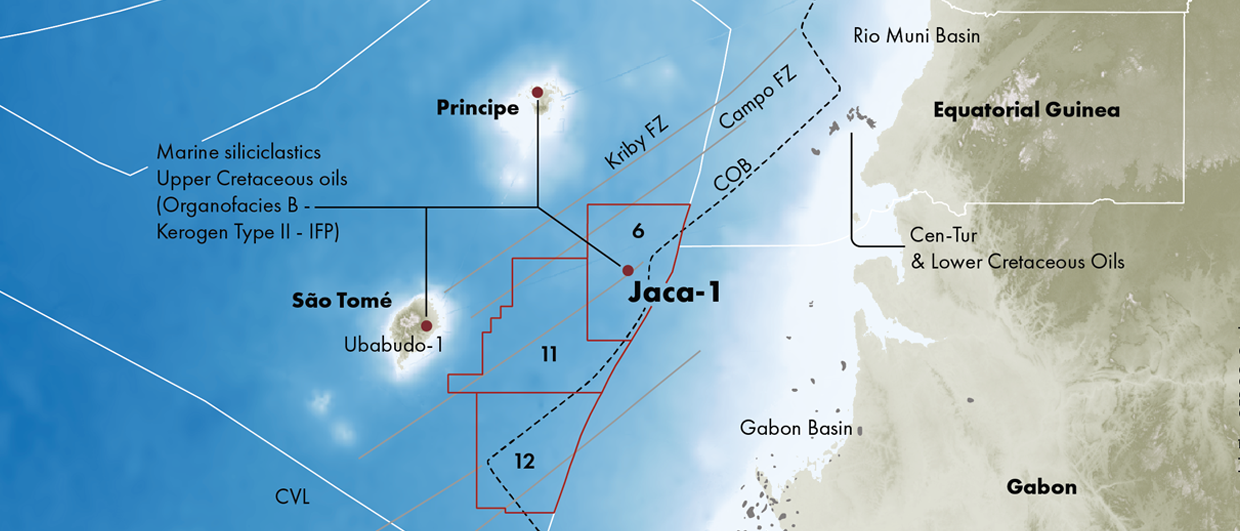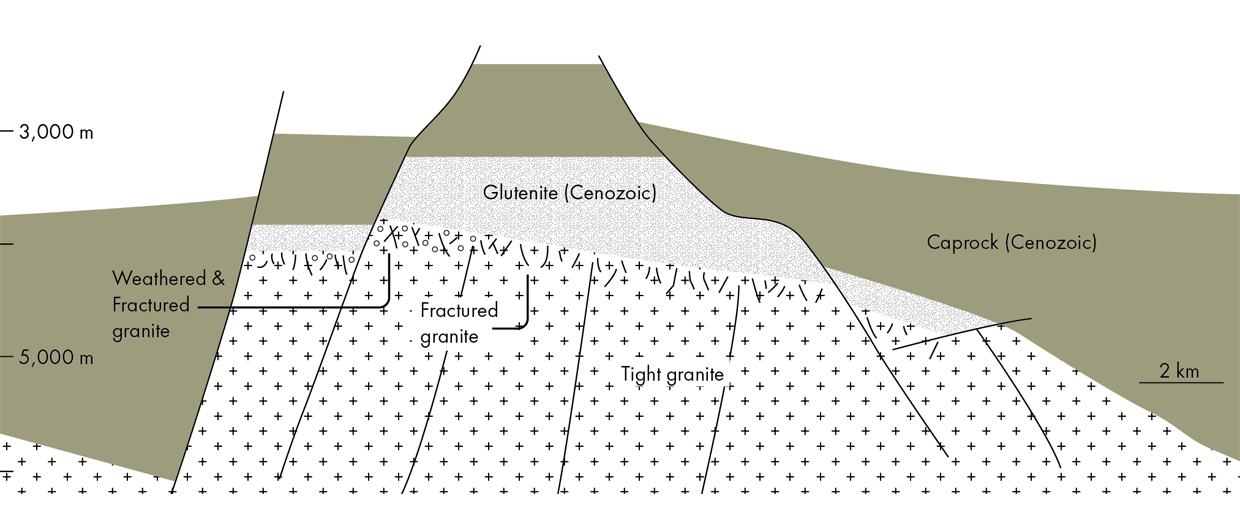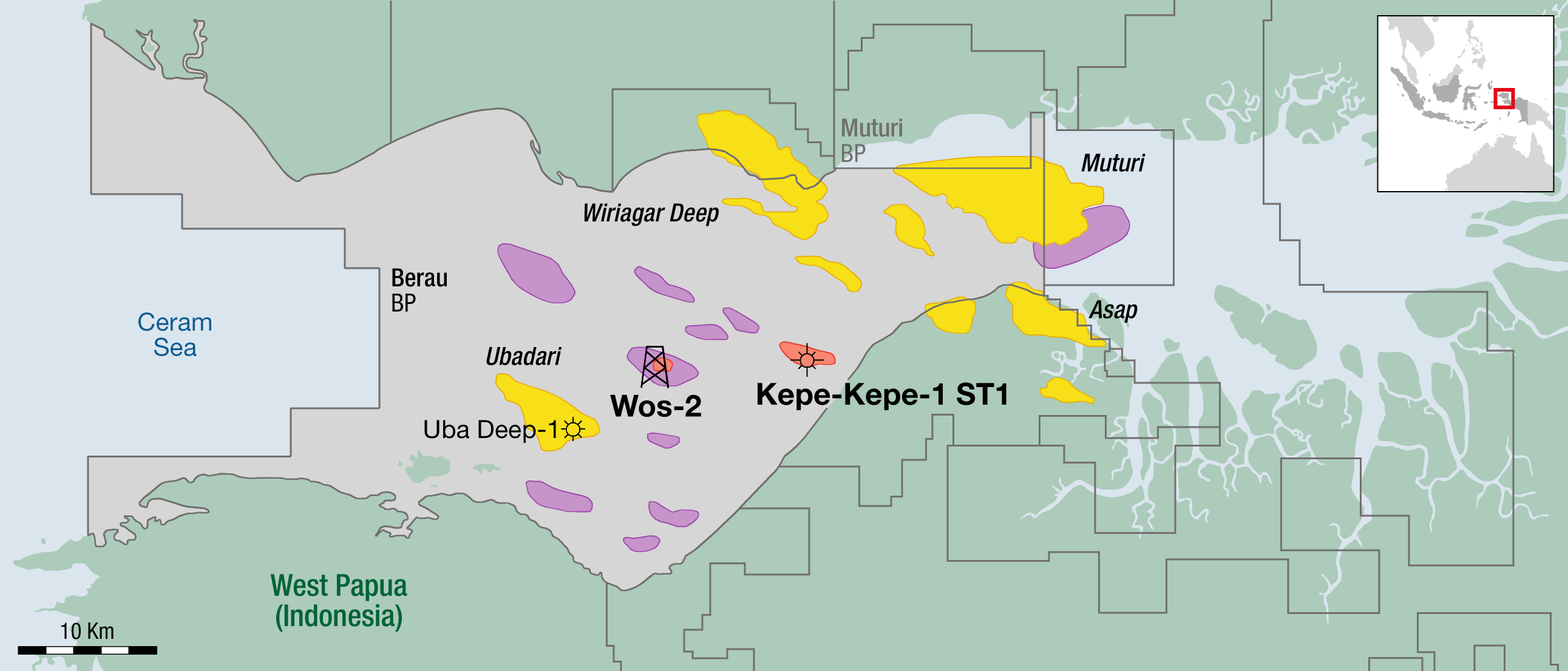Although only founded in late 2004, Afren has expanded rapidly and now covers seven countries in West and Central Africa. The company expects to produce 15 to 20,000 bopd in 2008, a remarkable achievement for such a young organisation.
Partner of choice
 Dr. Nick Johnson has a degree in Geology from Bristol University and a PhD from University College London. He worked for BP as an Exploration Geologist before joining OMV in 1991, where he became Head of Global Exploration and Reservoir, responsible for the technical quality and development of OMV’s global portfolio. He is currently Head of Exploration and New Ventures at Afren plc, a role he took up in September 2005. Photo: Jane Whaley“At Afren we have a distinct business model, which seems to be proving very successful,” explains Nick Johnson, Head of Exploration and New Ventures. “We aim to build the company through the full exploration, development and production cycle by partnering with indigenous African companies and governments and thereby acquiring equity stakes in exploration and development assets.”
Dr. Nick Johnson has a degree in Geology from Bristol University and a PhD from University College London. He worked for BP as an Exploration Geologist before joining OMV in 1991, where he became Head of Global Exploration and Reservoir, responsible for the technical quality and development of OMV’s global portfolio. He is currently Head of Exploration and New Ventures at Afren plc, a role he took up in September 2005. Photo: Jane Whaley“At Afren we have a distinct business model, which seems to be proving very successful,” explains Nick Johnson, Head of Exploration and New Ventures. “We aim to build the company through the full exploration, development and production cycle by partnering with indigenous African companies and governments and thereby acquiring equity stakes in exploration and development assets.”
Afren has a strong African orientation in its shareholders and partners, and the Chariman is Dr Rilwanu Lukman, former President and Secretary General of OPEC and currently advisor to the President of Nigeria. “We operate in Nigeria, Sao Tome and Principe JDZ (Joint Development Zone), Gabon, Congo, Cote d’Ivoire, Angola and Ghana, have offices in Lagos, as well as London, and our management and staff have a great track record and a deep-rooted knowledge of Africa,” Nick explains. “We believe that this enables us to be the partner of choice for African National Oil Companies, indigenous organisations, and Governments.
“When we floated on the London stock exchange in early 2005, we had just one single asset, part of a block in the JDZ,” he adds. “We now have 16 assets in seven countries, and the market value of the company has grown to more than 20 times its initial value, while the share price has more than tripled since floatation.”
Since this is the sort of growth that many companies would aspire to, it is interesting to consider the way in which Afren have built this successful portfolio, and the criteria they use when assessing possible assets.
Rapid portfolio expansion
 Afren believe that an important part of portfolio management is a broad and balanced spectrum, with exploration, appraisal and production, as demonstrated by its present range of assets. Image: Afren“To be successful, you must have a clear idea of what you want your portfolio to look like, but, at the same time, you can’t wait for your ‘dream’ assets to become available.” Nick says. “In addition to our distinct geographic focus, we know what we are looking for: acreage which we can take through the full E&P cycle. This usually includes proven undeveloped fields which have been held by the majors but undervalued, and therefore underexplored. We have been involved in the reactivation of a number of fields onshore Nigeria, which we were able to prove have the potential to be good, efficient producers. We are quite opportunistic and don’t have hard and fast rules, as shown by our recent move out of onshore and shallow water into deepwater assets in Ghana, but tend to avoid tectonically complex areas, which require equally complex – and expensive – solutions, and are best left to the majors.”
Afren believe that an important part of portfolio management is a broad and balanced spectrum, with exploration, appraisal and production, as demonstrated by its present range of assets. Image: Afren“To be successful, you must have a clear idea of what you want your portfolio to look like, but, at the same time, you can’t wait for your ‘dream’ assets to become available.” Nick says. “In addition to our distinct geographic focus, we know what we are looking for: acreage which we can take through the full E&P cycle. This usually includes proven undeveloped fields which have been held by the majors but undervalued, and therefore underexplored. We have been involved in the reactivation of a number of fields onshore Nigeria, which we were able to prove have the potential to be good, efficient producers. We are quite opportunistic and don’t have hard and fast rules, as shown by our recent move out of onshore and shallow water into deepwater assets in Ghana, but tend to avoid tectonically complex areas, which require equally complex – and expensive – solutions, and are best left to the majors.”
“In Africa there are no rigid rules about accessing the best opportunities, and deal execution with government approval is always a challenging process, although having Dr. Lukman as our Chairman helps, as he has many high level contacts. Having identified potential acreage, we undertake an opportunity screening process with extensive technical evaluation. We consider that peer review is essential, but being a small company, we have had to devise our own method to ensure we can achieve this, usually using external consultants. Basically, it is big company methodology applied to a small organisation.”
“Any successful oil company, whatever its size, needs to be strong technically, operationally and commercially.”
Obviously, as with any company, funding and financial risk are key, so having made the internal technical decision that an asset is interesting, commercial evaluations and negotiations are crucial. The degree of financial exposure and risk, and decisions about equity level, control and operatorship are fundamental to the potential success of a project, and in this area Afren rely on the strong financial background of the management team. “Any successful oil company, whatever its size, needs to be strong in all three areas,” Nick concludes, “technical, operational and commercial.”
Broad balanced spectrum
Nick believes that an important aspect of portfolio management is the maintenance of a broad and balanced spectrum. “We have an exploration portfolio with over 20 identified prospects, and a high impact exploration drilling programme for 2008,” he explains. “On the development side, we recently announced first oil from Okoro Setu, in shallow water offshore Nigeria. This is a major milestone, only two years after signing the agreement with our indigenous partner, although the field was originally discovered back in the 1970’s. Further appraisal and development drilling on our other Nigerian assets is also planned.”
As part of its portfolio development, Afren recently acquired all of Devon Energy’s assets in Cote d’Ivoire. “This has given us a ready platform with significant upside, gaining immediate production of about 3,000 boepd, and 16.7 MMboe of undeveloped reserves,” Nick explains.
“We intend concentrating solely on West Africa for the moment,” he adds. With the world class resources to be found in that part of the world, a solid financial position and established track record, and excellent production and reserves growth, it would appear that Afren’s strategy for portfolio growth is a successful one.





